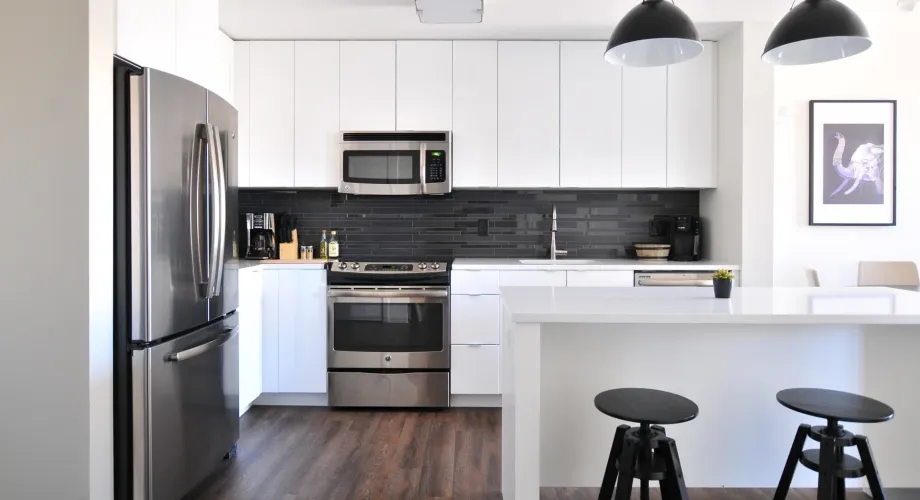
Our Process: How We Handle Maintenance Requests
As a landlord, maintenance requests from your tenants can be frustrating, time-intensive, and expensive to deal with. Worst of all, they seem to happen at the most inconvenient times—and often need to be dealt with immediately. It’s one of the most common reasons why many landlords will hire a property management company.
That’s why we’ve refined our process for maintenance requests to ensure all of our managed properties are in perfect shape. Handling these issues promptly and correctly keeps everyone happy.
So let’s take a look at how our process works and why maintenance is so important in property management.
Digitizing Maintenance Requests
When you’re managing a single property, maintenance requests via phone call or text are easy enough to keep track of. But when you’re managing hundreds of properties, you need a system to keep things organized so that every request is routed to the right person and the job gets done on time.
At Mergo, we use an online tenant portal where tenants are able to submit maintenance requests digitally. These get filed in our system so our team can analyze the request and send out the right vendor to take care of the job.
We understand that tenants want to know what’s going on with their request, so we keep them in the loop throughout the entire process by sending them details on who is coming, when they’re coming, how they’re going to fix the problem, and any other information they might need. Then, we send a confirmation when the job is done.
Thanks to this system, we’re able to process large volumes of maintenance requests quickly and efficiently. And because most of this is done automatically and we’re not spending time manually sorting through requests, talking to vendors, and tracking down information, we can keep costs low for our owners.
Addendums and Yearly Checks
While maintenance requests are great, they only work if tenants actually submit them. We want to hear about maintenance issues right when they happen so they can be fixed correctly, which is why we have uniform addendums for all of our properties that clearly outline what we expect from tenants.
These addendums state that tenants are responsible for minor maintenance like changing light bulbs and batteries in smoke detectors. They also clarify the difference between “normal wear and tear”—which is to be expected from any rental and should be covered by the owner—and damage from negligent use or wrongful intent, which the tenant would be charged for.
But most importantly, these addendums state that tenants are required to notify us immediately of any maintenance issues in their home. That way, we can know about issues as soon as they occur.
Even then, we don’t live in a perfect world and we can’t reasonably expect that every single tenant will inform us of maintenance issues. That’s why we also have yearly checks where we inspect our properties for maintenance issues or damage, regardless of what we have or have not heard from the tenant.
A quiet tenant is not necessarily a good tenant, and we want to make sure that our properties are in good shape even when a seemingly great tenant has been staying in them year after year.
Why We Take Maintenance Requests So Seriously
It might seem like we’re going a bit overboard with this process, but there’s a reason why we take this stuff so seriously.
Deferred maintenance is a common problem within property management that can needlessly cut into owner profits. Deferred maintenance is basically the idea that the longer you put off a repair, the more expensive it will get. If you fix a leak right away, it will be fairly inexpensive. But if you let a leak linger for days, weeks, or months, it could cause serious damage to the property that will result in large costs for the owner.
We try to minimize the effects of this by requiring tenants to report maintenance issues immediately and using our tenant portal system to automatically create alerts for problems that are fixed multiple times. For example, if a stove has been fixed three times in one year, we’ll be alerted and will likely replace the stove to stop spending money on repairs year after year. Even though it might be costly to buy a new stove, it’s even more costly to send out repairmen multiple times.
Not only does this prevent the costs associated with deferred maintenance, it keeps tenants happy because their problems are fixed right the first time. We don’t want to be sending vendors out to fix problems multiple times, and neither do the tenants!
Need Help?
Maintenance requests are our bread and butter, and they’re one of the most common reasons why landlords elect to work with us. If you’re getting tired of dealing with maintenance issues in your properties or even if you’re looking for some advice on the best way to handle maintenance as a landlord, we’re here to help.




